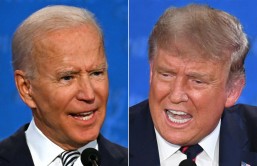Targeted brain training can improve cognitive performance of adolescents suffering from traumatic brain injuries.
Researchers at the Center for BrainHealth in the University of Texas, Dallas, examined brain health of 20 adolescents aged between 12 and 20 years. All of them suffered from some kind of traumatic brain injury at least six months prior the study. They had "gist reasoning deficits" because of which they had difficulty in understanding the "essence" of dense information.
The samples was divided into two treatment groups. The first one used strategy-based gist reasoning training and the other used fact-based memory training.
For one month, the adolescents participated in eight sessions of 45 minutes each. The researchers tested the adolescents' ability to abstract meanings and recall facts. The study showed that the adolescents from the gist reasoning training group had improvement in their ability to abstract meanings. Participants from the gist reasoning training group were also able to recall facts better.
"These preliminary results are promising in that higher-order cognitive training that focuses on 'big picture' thinking improves cognitive performance in ways that matter to everyday life success," said Dr. Lori Cook. "What we found was that training higher-order cognitive skills can have a positive impact on untrained key executive functions as well as lower-level, but also important, processes such as straightforward memory, which is used to remember details," said in a press release.
Researchers advised that following up with brain injury patients for a longer period of time to monitor growth will be beneficial for the patients. They added that more targeted brain training therapies could help these types of patients recover faster and more efficiently.
Dr. Cook added in the "While the study sample was small and a larger trial is needed, the real-life application of this training program is especially important for adolescents who are at a very challenging life-stage when they face major academic and social complexities. These cognitive challenges require reasoning, filtering, focusing, planning, self-regulation, activity management and combating 'information overload,' which is one of the chief complaints that teens with concussions express."
The study was published in the journal, Frontiers in Neurology.








